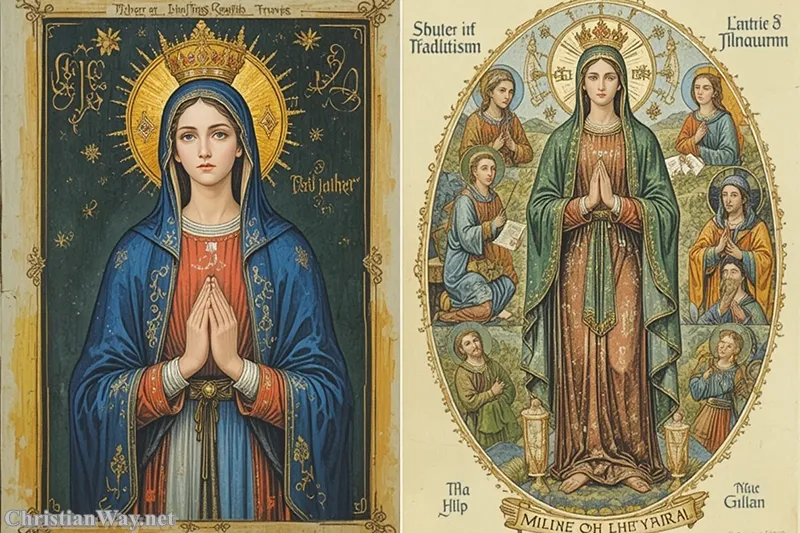Dear friends in Christ,
Every heart that has ever longed for meaning has, in some quiet moment, reached toward love — not the fleeting affection that passes with time, but the deep, eternal love that calls creation into being and holds it together. This love has a face, a voice, and a name. It is the love of God in Jesus — the Word made flesh, who dwelt among us not as a distant deity, but as a friend, a shepherd, and a Savior.
To speak of the love of God is to touch the very heart of the Christian faith. It is not merely one of God’s attributes; it is His essence. “God is love” (1 John 4:8). Yet, this truth, so simple in its words, is infinite in its mystery. How can the Creator of heaven and earth stoop down to wash the feet of His creatures? How can the Eternal One embrace suffering and death for the sake of those who wander far from Him? The answer lies not in philosophy, but in a Person — Jesus Christ.

In the life, death, and resurrection of Jesus, the love of God becomes visible, tangible, and near. It is the love that heals the broken, forgives the sinner, and restores the lost. Through Him, divine love ceases to be an idea and becomes an encounter.
The Eternal Love That Took Flesh
Before time began, the love of God already existed — a perfect communion between Father, Son, and Holy Spirit. Creation itself was born from that love, as the outpouring of divine joy. Yet when humanity turned away through sin, God did not withdraw His love. Instead, He revealed it even more fully, by entering history as one of us.
The Incarnation — God becoming man in Jesus — is the most astonishing act of love ever known. “The Word became flesh and dwelt among us” (John 1:14). The Almighty took on our weakness, our hunger, our tears. In Jesus, divine love stooped down to touch the dust and to redeem it.
This is not love as the world defines it — sentimental or conditional — but love that endures humiliation, rejection, and the Cross. It is love that gives everything, holding nothing back.
The Heart of Jesus: Mirror of God’s Love
If you wish to understand what God’s love is like, look to the Heart of Jesus. Every word He spoke, every gesture He made, flowed from that divine heart. When He healed the leper, comforted the sorrowful, forgave the adulteress, and welcomed the sinner, He was revealing the Father’s own mercy.
“He who has seen Me has seen the Father,” Jesus said (John 14:9). In His compassion, we see God’s tenderness. In His patience, we see God’s mercy. In His tears, we see God’s sorrow for our pain.
The Sacred Heart — pierced on the Cross, yet burning with eternal flame — is the symbol of that love. It is not a mere image, but a living truth: that the Creator of the universe loves each soul personally, completely, beyond measure.
Love Revealed on the Cross
There is no greater proof of the love of God in Jesus than the Cross. At Calvary, love reached its highest expression and its deepest humility. There, the Son of God stretched out His arms between heaven and earth, embracing the whole world in mercy.
As He hung upon the Cross, bleeding and abandoned, He prayed for those who crucified Him: “Father, forgive them, for they know not what they do” (Luke 23:34). That prayer was not only for them, but for us all. It is love that refuses to retaliate, love that endures betrayal, love that conquers hatred by sacrifice.
To gaze upon the Crucified is to see how far love will go — to the very end (John 13:1). What the world saw as defeat was, in truth, the triumph of divine love.
Love That Rises and Lives Forever
The Resurrection of Jesus is the victory of love over death. The tomb could not contain the One whose very being is love. When the Risen Christ stood before His disciples and said, “Peace be with you,” He was showing that love always has the final word.
This love is not confined to history; it is alive in every age. Through the Holy Spirit, the love of Christ continues to move hearts, to heal wounds, and to transform lives. It is the same love that we encounter in prayer, in the Scriptures, and above all in the Eucharist, where Jesus gives Himself entirely — Body, Blood, Soul, and Divinity — for love of us.
“Greater love has no one than this: to lay down one’s life for one’s friends” (John 15:13). The Eucharist is that love made perpetual, so that every soul may taste and see the goodness of God.
Love That Calls Us to Love
The love of God in Jesus is not something we merely admire; it is something we are called to live. “As I have loved you, so you must love one another” (John 13:34).
Christian life is not a list of rules but a response to love. To love God with all our heart and to love our neighbor as ourselves — this is the law fulfilled in Christ. When we forgive, when we serve, when we lift the fallen, we participate in the very life of God.
Yet, to love as Jesus loved requires grace. It means choosing compassion over anger, generosity over self-interest, and mercy over judgment. It means loving even when it costs us something — perhaps especially then.
This divine love transforms the soul. It turns fear into courage, resentment into forgiveness, and despair into hope. It makes saints out of sinners, and apostles out of the ordinary.
The Love of God in Daily Life
Where can we find this love today? Not only in churches or sacred texts, but in the quiet acts of kindness that mirror Christ’s heart. In the mother who prays for her child, in the worker who labors honestly, in the person who forgives after being wronged — the love of God in Jesus shines.
Every small act of love becomes a reflection of His presence. As St. Teresa of Calcutta said, “We can do no great things, only small things with great love.” In each act done for love of God, Christ lives anew in the world.
Love Stronger Than Suffering
Even in pain and loss, the love of God does not fail. Jesus Himself entered into our suffering, sanctifying it with His presence. When we suffer, we do not face it alone; the Crucified One is beside us.
In those moments when love seems silent, faith reminds us that it is still working — quietly, deeply, redemptively. “Nothing can separate us from the love of God in Christ Jesus our Lord” (Romans 8:39).
Every cross we bear, when united with His, becomes a seed of resurrection. Through it, we learn that love is not destroyed by suffering; it is purified by it.
Love That Sends Us on Mission
To know the love of God in Jesus is to be sent forth to share it. The Christian is not a passive recipient of grace, but a living witness. The world today hungers for genuine love — not slogans or systems, but the warmth of Christ made visible through us.
Our mission is to make God’s love credible again — through mercy, compassion, and truth. Every smile given, every injustice resisted, every prayer offered for another becomes a sign of that love still at work in the world.
Reflect and Pray
The love of God in Jesus is not an abstract doctrine. It is the very heartbeat of our faith. It is the light that reveals who we are and the grace that makes us whole. To receive that love is to be changed; to share it is to become truly human.
Let us, then, draw near to the Heart of Christ. Let us rest in His mercy and allow His love to fill every corner of our lives. And as we go forth, let us carry that love into the world — gentle, steadfast, and true.
Prayer
Lord Jesus, You are the living sign of the Father’s love.
Teach us to see with Your eyes, to love with Your heart,
and to serve with joy all those You place in our path.
May Your love heal what is wounded within us
and make us instruments of peace in the world.
Amen.
— Fr. John Matthew, for Christian Way





